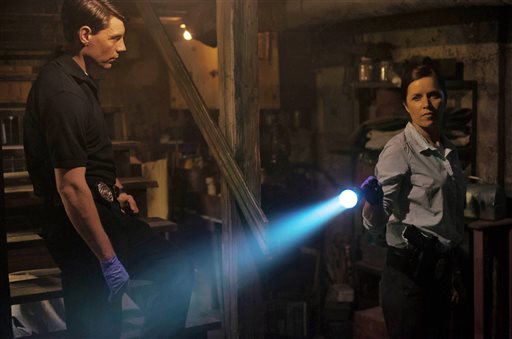By Kenneth Turan
LOS ANGELES - Based on a whopper of a best-selling novel, with a major star in the lead and a top-of-the line director behind the camera, the film adaptation of Gillian Flynn's "Gone Girl" couldn't be a bigger deal.
Great is the interest in this deliciously twisted David Fincher film starring Ben Affleck and Rosamund Pike as the couple from hell. And or once, all the fuss is justified. Superbly cast from the two at the top to the smallest speaking parts, impeccably directed by Fincher and crafted by his regular team to within an inch of its life, "Gone Girl" shows the remarkable things that can happen when filmmaker and material are this well matched.
Fincher, whose work can be gratuitously disturbing ("Seven") as well as formally impressive ("The Social Network"), is by nature a chilly director, a temperament that meshes well with the unsettlingly bleak view of human nature that "Gone Girl" is all about.
Novelist and screenwriter Flynn must have been briefed by the Shadow himself about the evil that lurks in the hearts of men (and women), not to mention the lies, manipulation and self-interest that live there too. But the fact that Flynn's subjects are essentially love, marriage and personal relationships gives "Gone Girl" a human connection that was absent in Fincher's off-putting last work, "The Girl With the Dragon Tattoo."
Sticking closely to Flynn's dazzlingly complex plot and its cascade of surprises, "Gone Girl" is the kind of portrait of a marriage that might have resulted if Alfred Hitchcock had watched a lot of Ingmar Bergman before getting down to work.
The setting is the depressed but imaginary Midwestern town of North Carthage, Mo., where Nick Dunne (Affleck) is introduced. Looking distraught and distracted, he heads to a bar he owns with his twin sister, Margo (Carrie Coon), where he throws down an early morning shot. It's a drink he will very soon be needing.
For when Nick returns home on this, his fifth wedding anniversary, the door is open, the living room's glass coffee table has been reduced to fragments and his wife, Amy (Pike), is gone, gone, gone.
Quick on the scene are Detective Rhonda Boney (an excellent Kim Dickens) and Officer James Gilpin (Patrick Fugit, the star of "Almost Famous"), who methodically go about trying to figure out what happened to Amy and who might be responsible for whatever that was.
But that is only half of "Gone Girl's" narrative. The film goes back and forth from the investigative present to extensive flashbacks of the past, snapshots that are brought to life through Amy's voice-over reading of her very personal diary.
Back we go half a dozen years to Nick and Amy meeting in Manhattan, two glib and verbal magazine writers who fall truly, madly, deeply in love and enjoy two blissful years of marriage.
It's at this point that reality intrudes. Both Nick and Amy lose their jobs, her trust fund takes a hit, his mother gets cancer, and the end result is that the couple move to North Carthage, Nick's hometown and a place that total New Yorker Amy simply cannot abide.
Meanwhile, in the day-by-day present, Nick is starting to look more and more like a suspect (today's savage media circus is one of the film's targets), partially because his frat-boy good looks and charm don't play well on the air.
Affleck gets Nick's combination of arrogance and likability exactly right, and Pike is completely his equal in a performance that defies expectations at every turn.
"Gone Girl's" twisty plot wouldn't be as effective as it is if the casting of all the subsidiary characters weren't as good as the leads, and Neil Patrick Harris, Tyler Perry, Missi Pyle, Emily Ratajkowski and Casey Wilson supplement this intricate mosaic.

